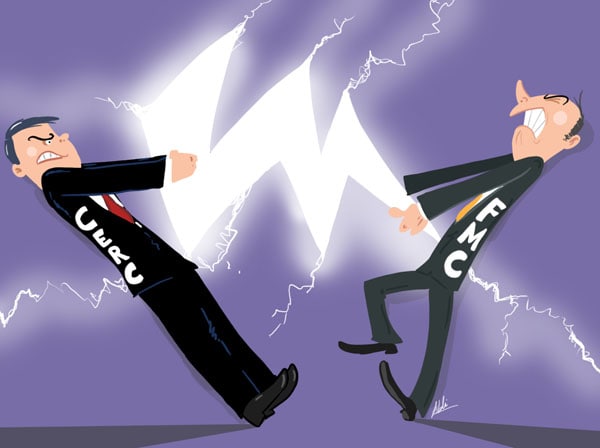
Trading Electricity - The Way Ahead
The fight to regulate power futures in the country is depriving traders from taking long calls on the commodity
The Central Electricity Regulatory Commission (CERC) and the Forward Markets Commission (FMC) are locked in a legal battle to decide who regulates the power futures market in India. The issue has been hanging fire for some time now and the FMC moved the Bombay High Court in November 2009 to settle the turf war. The court had suggested that since it is a matter between two exchanges, secretaries in the relevant ministries (power and consumer affairs) should try to resolve the issue.

Illustration: Abhijeet Kini
Until the Bombay HC takes a final view, however, it will not be possible for any exchange to offer contracts for beyond 11 days. Any contract of more than 11 days is considered a forward contract and comes under the FMC’s jurisdiction. Indian Energy Exchange began offering term-ahead contracts, including those where delivery could be a month later, in September 2009 with the CERC’s go-ahead. Subsequently, CERC also allowed Power Exchange of India Ltd. to offer similar contracts. That irked FMC, which questioned CERC’s power to allow or disallow futures contracts saying that it was the sole regulator of commodity futures in India.
Meanwhile, CERC on January 20, 2010, issued new regulations that would govern power trading, including electricity futures in the country. CERC chairman Pramod Deo said any exchange that offers power trading comes under its ambit. He, however, declined to comment on the jurisdiction issue as it is still in court.
Expert View
Former power secretary R.V. Shahi says that the Electricity Act 2003 is a comprehensive legislation and covers all aspects of the electricity sector. Shahi says CERC has to play the pivotal role in facilitating and shaping the structure of the industry, ultimately towards a market-driven architecture. “It is, therefore, obvious that its role extends to trading, power exchange and [the] so-called futures trade. The Forward Markets Commission, in my considered opinion, should have no role in matters relating to electricity sector,” he says.
(This story appears in the 30 November, -0001 issue of Forbes India. To visit our Archives, click here.)




